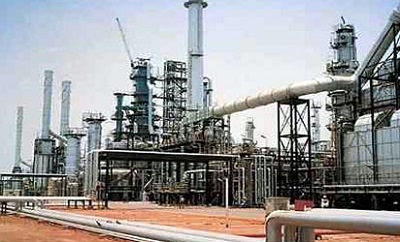Nigeria Set To Lose Competiveness In Global Market Industry– NNRC
 The Nigeria Natural Resource Charter (NNRC) has said that Nigeria is fast losing its competitiveness in the global oil market due to new hydrocarbon discoveries in new jurisdictions within the African continent.
The Nigeria Natural Resource Charter (NNRC) has said that Nigeria is fast losing its competitiveness in the global oil market due to new hydrocarbon discoveries in new jurisdictions within the African continent.
The NNRC which is the Nigerian version of a global initiative designed to help governments and societies effectively harness opportunities created by their natural resources, explained at a recent launch of an online extractive sector news outfit – Extractive360.com, in Abuja, that without appropriate reforms, the odds were heavily against Nigeria’s oil industry in the global oil market.
According to a presentation by the NNRC Programme Coordinator, Tengi George-Ikoli, countries like Ghana; Cote d’Ivoire, Tanzania, Kenya and Uganda, have all emerged as new hydrocarbon jurisdictions in the continent, offering investors better alternatives with market-driven reforms.
George-Ikoli, explained that these countries and their offerings were threats to Nigeria’s competitiveness.
Stating that shale oil production has changed dynamics of the global crude oil market, she noted: “There are indications that crude oil imports from Nigeria could be further threatened with the country’s highest oil buyer, India, signing an agreement to import 0.6 million barrels of oil from the United States.”
“India was Nigeria’s top crude oil buyer in five of the last six years. More so, other countries like the United Kingdom are now importing more from the United States, impacting negatively on imports from Nigeria.
“This raises further questions about the long-term structural implications of two ‘revolutions’ in the world of energy: shale as a new source of supply, and the gathering implications of clean energy transitions on the demand side, including improvements in fuel efficiency and the rise of electricity as an alternative to oil in parts of the transportation sector,” George-Ikoli, explained.
She informed that a recent report by Energy Information Administration (EIA), also showed a gradual decline in crude oil imports by the United States to an average of 7.7 million barrels per day (mbd) in 2018 from a high of 10.1mbd in 2005, mostly on account of growing shale oil production.
“That development has had a severe impact on US crude import from Nigeria. According to that EIA report, between 2014 and 2015, before and shortly after the decline in oil prices, there were months that US imported no crude oil from Nigeria.
“Still, even with those losses, the discovery of crude oil in many African countries in the last few years erodes Nigeria’s competitive advantage further.
“Countries like Ghana, Cote d’Ivoire, Tanzania, Kenya, Uganda, all new kids on the bloc, offer alternative markets to investors posing great challenges to Nigeria,” she added.
George-Ikoli, stated that because this conversation about the future of Nigeria’s oil economy has not gained traction, suggested that, “the temerity of the challenges facing this country is yet to dawn on the government.”
According to her: “With the global shift towards wind, solar and other energy sources and the discovery of commercial quantities across the globe, Nigeria’s reliance on oil revenues to fund its budget as well might leave her in dire straits.”
“If the Nigerian government embarked in the much needed reforms in the sector, it will create a well-functioning energy sector which will bring a wider range of resources and technologies into play, providing some of the capital and know-how that can support more diversified growth.







